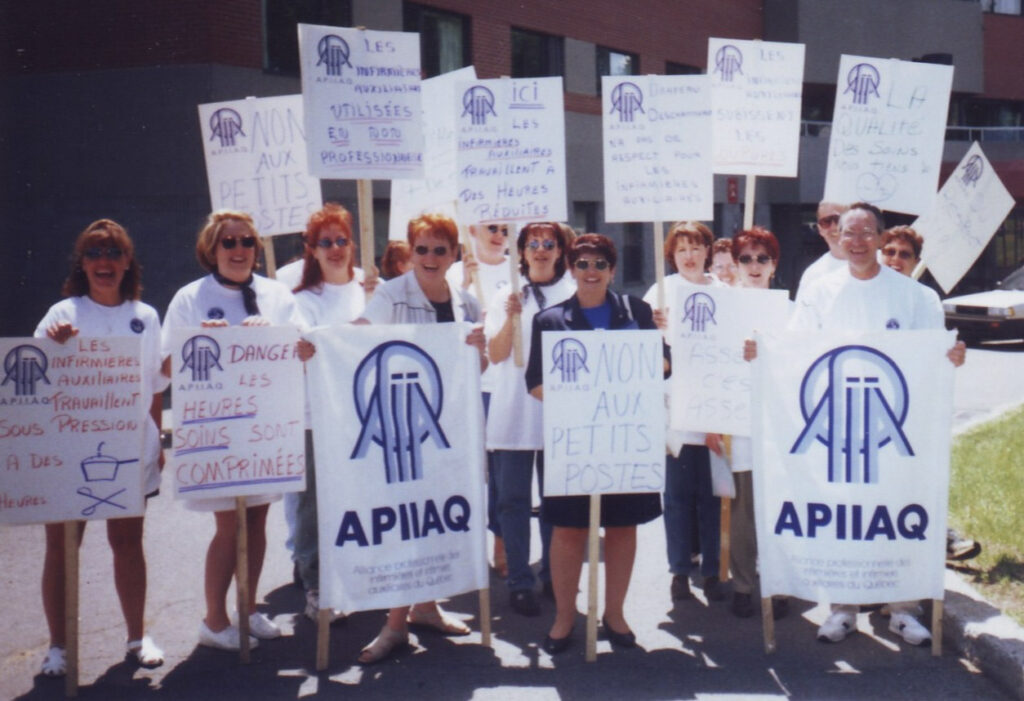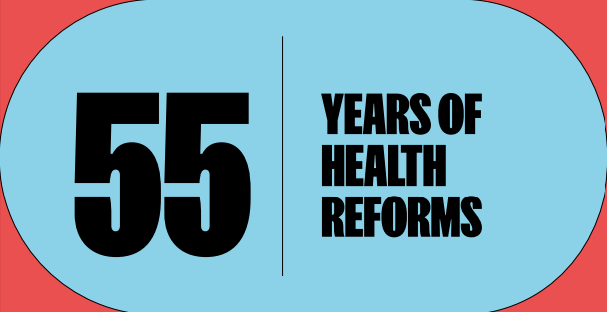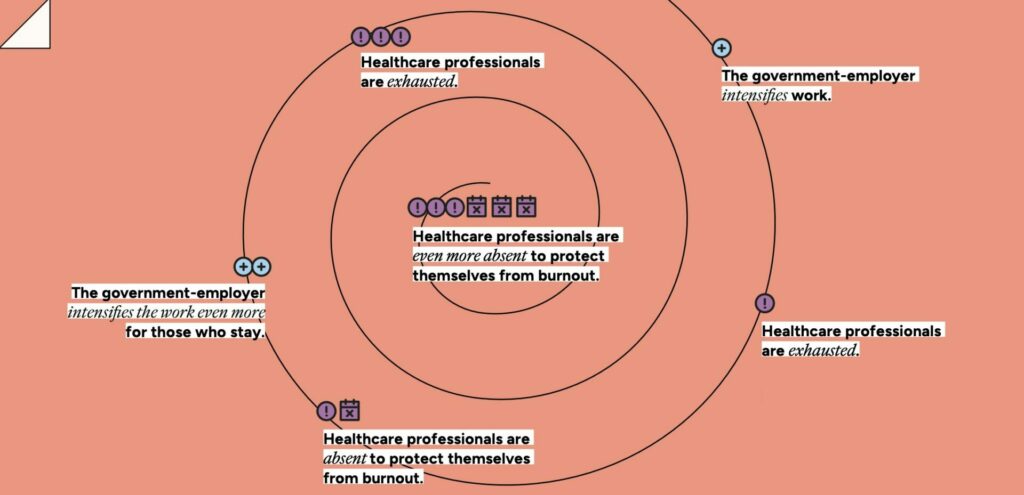No. 01 – Fall 2025
Word from the president

No, your eyes aren’t playing tricks on you
There’s a new paper magazine in your mailbox! I’m sure you’ve been wondering what’s got into us! And yet, this decision was the result of careful reflection, and I am convinced that you will enjoy flipping through these few pages. As the editions come out, this magazine will teach you
more about societal issues, topics that affect the health network and that concern you as healthcare professionals and women.
In this first edition, the Dubé reform is the main theme. Minister Dubé had warned that the temple columns would shake, and he wasn’t lying. But why is he trying to overhaul the health network for the umpteenth time when previous reforms did not produce the desired results? What pushes health ministers to change structures rather than invest in employees and, at the same time, in public services? These are a few questions we wanted to answer, as simply as possible, in this first magazine.
Happy reading!
Julie Bouchard, FIQ President
Word from the Communications Committee

Dear colleagues,
The Communications Committee is proud to present you with the first edition of La Résonance de la FIQ. This magazine is the result of a long reflection process to find stimulating and topical subjects that will make you want to find out more about the files your Federation is working on.
The committee’s objective has been clear from the start: La Résonance is intended to help the FIQ better communicate with its members, regardless of their location and interests, to pass on relevant information and to highlight union and feminist struggles.
Some know little about the role of a union and think it is merely about filing grievances and negotiating the collective agreement. With this magazine, which will cover different themes in each edition, you will see it’s much more than that.
Enjoy!
2021-2025 Communications Committee (Joëlle Bilodeau, Syndicat des professionnelles en soins de santé du Centre-Sud-de-l’Île-de-Montréal , Jean-Sébastien Blais, Syndicat interprofessionnel en soins de santé de l’Abitibi-Témiscamingue, Christopher Dunford, Syndicat des professionnelles en soins de la Montérégie-Est, Pierre Rodrigue, Syndicat des professionnelles en soins de Montérégie-Centre, Bianca Morin Tremblay, Syndicat des professionnelles en soins du Saguenay–Lac-Saint-Jean)
Articles

75 years of the licensed practical nurse profession
The FIQ is proud to celebrate the 75th anniversary of the licensed practical nurse profession. Licensed practical nurses work in multiple settings and can provide a wide range of care, from helping assess a patient’s health, administering certain medication and vaccines, and providing wound-related care.

Dubé reform in brief
The Dubé reform led to the creation of Santé Québec on April 29, 2024. Nearly a year and a half later, where are we?

Reforming healthcare: social mission or accounting logic?
Since the RSSS was set up at the turn of the 1970s, reforms and policies have systematically been presented from the angle of improving access to care. However, the same issues are still criticized: labour shortages, long waiting times in emergency departments and difficulties in accessing front-line care. What explains this stagnation?

The health network has undergone several reforms in the last 55 years, reforms that have had major impacts on the work of healthcare professionals. With the Dubé reform, we are witnessing the culmination of these major reforms, which are unravelling, law by law, the very foundations of the RSSS.

Workforce shortage or healthcare professional exodus?
The healthcare professional shortage is a reality that affects work in the field. To justify this situation, the government claims there is a “labour shortage,” which allows it to absolve itself of responsibility for the catastrophic state of the RSSS. By saying there is a shortage, it frames the problem as inevitable rather than as the result of many years of bad political decisions.

The invisible cost of austerity
When the government disengages, who pays the price? Often women do. They use more public services and more of them work there, so they pay twice instead of once. This reality hits healthcare professionals hard, as they have to deal with an additional workload in the institutions, while also providing more care in their family, with ever less government support.

Practical information: overtime and retirement
The Act respecting the Government and Public Employees Retirement Plan (RREGOP) stipulates that only base salary is eligible for the calculation of the retirement pension. Overtime is not taken into account, even for a healthcare professional working overtime at a single rate for less than 40 hours a week.


